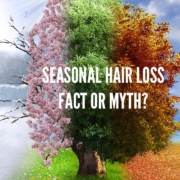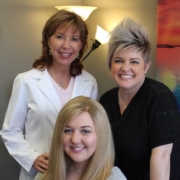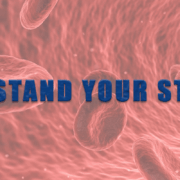How To Stop Hair Loss In Older Women in Nashville, TN
Combat hair loss with effective solutions for older women today!
As women age, they may experience changes in their hair, including thinning, loss of volume, and even bald patches. While this can be distressing, there are effective ways to address and even reverse hair loss in older women. nderstanding the underlying causes and taking proactive steps, it’s possible to restore confidence and maintain healthy, vibrant hair. If you’re experiencing hair loss, you’re not alone, and there are solutions available to help you look and feel your best.
Hair Loss in Older Women
Hair loss in older women can be attributed to various factors, including hormonal changes, genetics, and lifestyle. Understanding the root cause of your hair loss is essential for finding the most effective solution. Here are some common factors that contribute to hair loss in older women:
– Hormonal Changes: Fluctuations in hormone levels, particularly during menopause, can lead to hair thinning and loss.
– Genetic Predisposition: If other women in your family have experienced hair loss, there’s a possibility that genetics play a role in your own hair health.
– Stress and Lifestyle: High levels of stress, poor dietary choices, and certain lifestyle factors can contribute to hair loss.
Managing Hormonal Changes
For many older women, hormonal changes can be a major factor in hair loss. As estrogen levels decline during menopause, it can lead to an increase in the production of dihydrotestosterone (DHT), a hormone linked to hair loss. To address this, consider the following approaches:
– Hormone Replacement Therapy: Discussing hormone replacement therapy with a healthcare provider can help balance hormone levels and potentially mitigate hair loss.
– Nutritional Support: Incorporating foods rich in essential vitamins and minerals can support hormonal balance and hair health.
– Scalp Massage: Daily scalp massage can stimulate blood flow to the hair follicles, promoting healthy hair growth.
Targeted Hair Treatments
In addition to addressing hormonal changes, targeted hair treatments can play a vital role in stopping hair loss and promoting regrowth in older women. Here are some effective treatments to consider:
– Minoxidil: This over-the-counter treatment is approved by the FDA for promoting hair regrowth and preventing further loss. It’s available in various strengths and formulations.
– Platelet-Rich Plasma (PRP) Therapy: This innovative treatment involves injecting a concentrated form of the patient’s blood into the scalp to stimulate hair growth.
– Laser Therapy: Low-level laser therapy can help improve scalp circulation and stimulate hair follicles, leading to thicker, healthier hair.
Nutritional Support for Hair Health
A balanced, nutrient-rich diet is crucial for maintaining healthy hair, especially for older women experiencing hair loss. Here are some key nutrients to focus on for optimal hair health:
– Biotin: Also known as vitamin B7, biotin plays a critical role in maintaining the health of the hair, skin, and nails.
– Omega-3 Fatty Acids: Found in foods like salmon and chia seeds, omega-3s support scalp health and promote hair growth.
– Vitamin E: This powerful antioxidant helps to repair and build tissue, making it essential for healthy hair growth.
Professional Consultation and Treatment Plans
If you’re struggling with hair loss as an older woman, seeking professional consultation is essential. A qualified dermatologist or hair restoration specialist can assess your individual needs and create a personalized treatment plan. They can also provide guidance on the use of prescription medications and advanced treatment options to address your specific hair loss concerns.
Schedule Appointment
While hair loss can be a common concern for older women, it’s crucial to remember that effective solutions are available. nderstanding the underlying causes, exploring targeted treatments, and prioritizing a healthy lifestyle, it’s possible to stop hair loss and restore confidence in your appearance. Whether you’re experiencing thinning hair or more significant hair loss, taking proactive steps can make a meaningful difference in your overall hair health.














